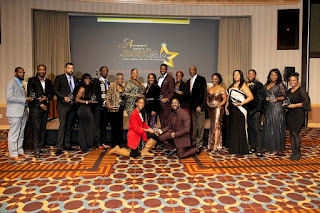The seven principles of Kwanzaa (Nguzo Saba) are an important part of our work at Just Us Books. They not only shape our approach to business, but they show up as themes in many of the titles our company has published.
1. Umoja = Unity (To strive for and maintain unity in the family, community, nation and race.) Book Recommendations: Kwame Nkrumah's Midnight Speech for Independence; Sink or Swim; The March on Washington
2. Kujichagulia = Self-Determination (To define ourselves, name ourselves, create for ourselves and speak for ourselves).
Book Recommendations: Papa's Free Day Party; We Could Be Brothers; Path to My African Eyes; I Told You I Can Play
3. Ujima = Collective Work and Responsibility (To build and maintain our community together and make our brother's and sister's problems our problems and to solve them together)
Book Recommendations: Recognize: An Anthology Honoring and Amplifying Black Life; Willimena Rules; Freedom Rides: Journey to Justice; 12 Brown Boys
4. Ujamaa = Cooperative Economics (To build and maintain our own stores, shops and other businesses and to profit from them together.)
Book Recommendations: The March on Washington; Tamika and the Wisdom Rings
5. Nia = Purpose (To make our collective vocation the building and developing of our community in order to restore our people to their traditional greatness.)
Book Recommendations: Defiant: Growing Up in the Jim Crow South; Scientists, Healers and Inventors; Great Women in the Struggle; Kids Book of Wisdom
6. Kuumba = Creativity (To do always as much as we can, in the way we can, in order to leave our community more beautiful and beneficial than we inherited it
Book Recommendations: Poetry from the Masters: Black Arts Movement; Clothes I Love to Wear
7. Imani = Faith (To believe with all our heart in our people, our parents, our teachers, our leaders and the righteousness and victory of our struggle.)
Book Recommendations: We Rise, We Resist, We Raise Our Voices, Bishop Daniel Payne; Come by Here Lord
What are your favorite books about Kwanzaa or books that focus on one (or more) of the Nguzo Saba?

















































